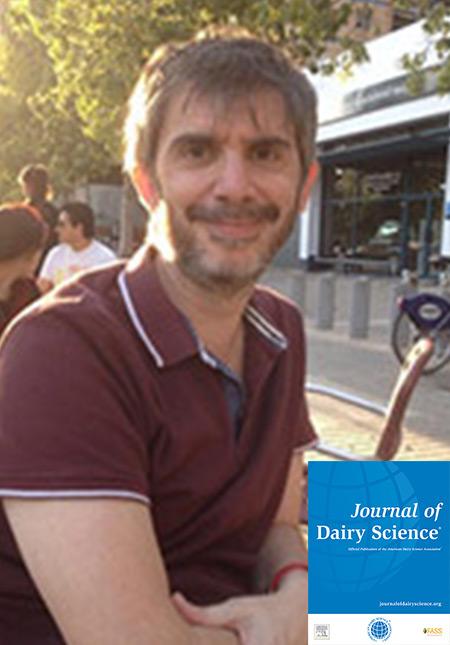
Name: Andres Legarra
Institution: INRAE, France
Role with Journal of Dairy Science (JDS): Senior editor, Genetics and Genomics section
Can you tell us a bit about your background, and what your current research is focused on?
I come from a small town in an area of the Spanish countryside where dairy farms (cattle, but also sheep) were, and still are, rather common. I have an affinity for math and genetics, and I try to develop methods that breeders can use to select better animals. Right now, I work in methods to assess quality of national genomic predictions, to foster across-breed exchange of genetically better animals in dairy sheep, and to use complex data for genetic improvement.
What advice do you have for grad students or other early-career scientists submitting their first manuscripts? What are common oversights you see?
The manuscript needs to tell one main message, and this implies that the student cannot just tell everything that was done. The objectives of the study need to be clear so that the reader feels an interest in it. Then, writing needs to be detailed, and vague statements should be avoided. In rounds of revision, early-career scientists tend to see reviewers as an obstacle, but in fact they are friendly and helpful. For students like me whose native language is not English, I recommend that they read fiction or newspapers to improve their language.
Why should authors publish in JDS?
Because it is a way to be read and judged by peers with the same interests. Also (perhaps sadly) because the impact factor is quite good. The work of the editorial team is good, and the final publication is very professional. And I want to think that the reviewing process is kind for authors and reasonably fast.
What do you think are the biggest challenges currently facing the dairy industry, and how is JDS part of the solution?
There is a big criticism in society toward animal production and animal foods (including dairy) and we’re very bad at explaining that livestock farming is part of the solution for a better planet and healthy and accessible food. All industries tend to be self-centered, and it is hard to identify these problems. JDS could engage (it already does, in my opinion) showing more disputed facts and proposing solutions for today’s problems such as global warming, ethical livestock farming, or controversial nutritional facts.